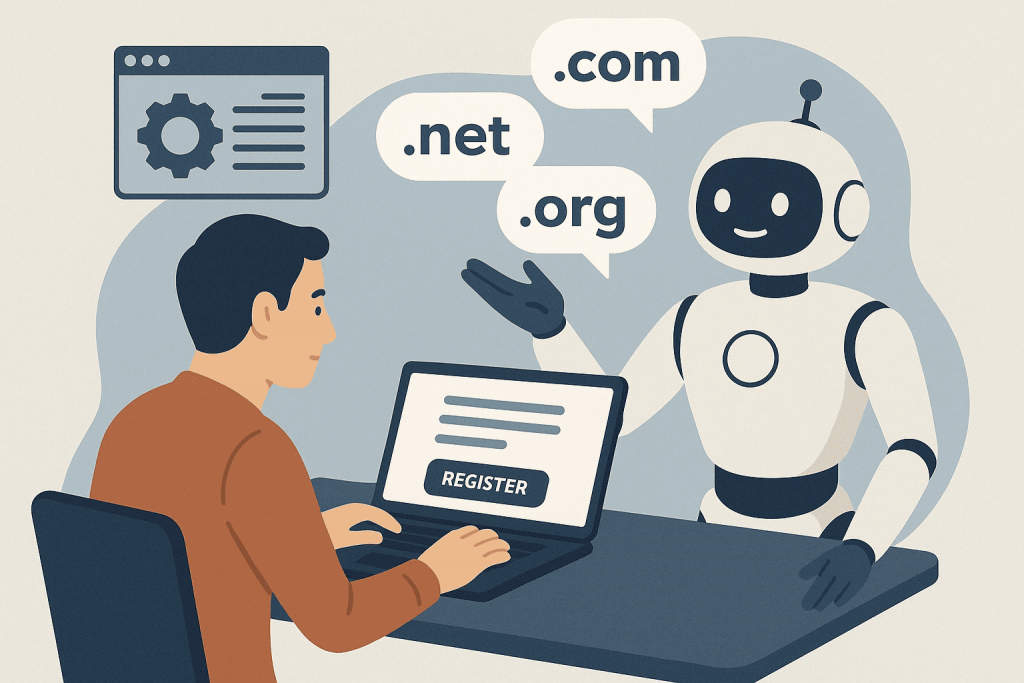
In a world where every second counts, the domain registration process is undergoing a technological revolution. What once required manual checking, registry communication, and confirmation, now happens automatically — within seconds. Automation systems and artificial intelligence algorithms are reshaping not only the speed but also the very logic of how we work with domains.
Automation as the New Market Standard
Automation has become an integral part of the domain industry. Today, registrars use integrated API systems that allow instant domain availability checks and registrations. Users no longer have to interact directly with the registry — the server handles everything in the background. This reduces errors, accelerates processing, and makes domain registration accessible even to non-technical users.
Automation also extends to domain management. The system can automatically renew domains, update DNS records, issue SSL certificates, or configure corporate email. For businesses, this means fewer risks of losing domains due to human error and more stable online operations. Ultimately, automation enables registrars to serve millions of clients efficiently, without increasing operational costs.
How AI Is Changing Domain Selection
If automation is about speed and reliability, artificial intelligence is about intelligent decision-making. Machine learning algorithms analyze search trends, keywords, user geography, and even the emotional tone of names. Based on this data, they recommend domain options with the greatest potential for branding or SEO promotion.
Modern AI systems can determine whether a name is easy to pronounce, memorable, or commercially valuable. They also suggest alternative domain zones — for instance, if .com is taken, the algorithm might recommend .ua or .site with a similar name. Such tools have already become standard among leading registrars, and more users now rely on algorithms rather than intuition when choosing names.
Predicting Domain Value
AI not only helps to choose domains but also to evaluate them. Algorithms analyze registration history, name length, keyword frequency, social media mentions, and even media references. This enables the creation of dynamic pricing models for the secondary domain market, helping to identify investment potential and forecast demand. As a result, a new class of investors — “domain analysts” — is emerging, making data-driven domain purchases instead of relying on guesswork.
Personalization and User Experience
AI technologies are redefining how users interact with registrars. The system can recognize user intent — whether they’re searching for a domain for a business, personal blog, or tech project — and provide personalized recommendations beyond just available names. Users may be offered complete packages including hosting, mail, and SSL certificates, all within a unified interface.
For companies, this personalization improves conversions. When clients see solutions tailored to their goals, they are more likely to finalize the purchase. Thus, artificial intelligence becomes not only an optimization tool but also a powerful marketing assistant.
Impact on the Market and Competition
Thanks to automation and AI, the domain market has become more open and competitive. While global registrars once dominated, local providers can now offer comparable services using API automation and AI-powered recommendations. This fosters innovation, lowers prices, and improves service quality.
User behavior is changing too: many now register multiple domains at once, experimenting with names and ideas. With instant checks and payments, the process has become so simple that new ideas can be launched instantly — creating startups, blogs, and online services that grow into full-fledged brands.
The Future of the Domain Industry
The next stage is full AI integration into all domain management processes. Systems are already being tested that can automatically generate a business name, check its availability across zones, register it, connect essential services, and even launch a basic website. Such “turnkey registration” is no longer science fiction — it’s an emerging reality.
In the near future, users might not even search for domains manually. Describing an idea will be enough — the system will choose, register, and configure everything automatically. This will make digital identity universal and effortless.
Conclusion
Automation and artificial intelligence have turned the domain market from a technical niche into a dynamic ecosystem focused on speed, simplicity, and precision. Registering a domain is now instantaneous, and name selection has become a science powered by data and analytics. The future of the internet is an intelligent, automated environment where technology empowers people to bring their ideas to life without barriers.

Leave a Reply